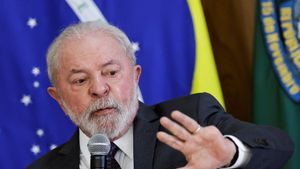The excitement of ski racing faced an unexpected halt as the highly anticipated downhill ski race at Garmisch-Partenkirchen was canceled due to adverse weather conditions. Originally scheduled for February 2, 2025, the men’s Kandahar downhill was expected to draw fans and competitors alike, but thick fog and poor visibility led officials to call off the event entirely.
The decision, announced late on February 1, shattered the hopes of many athletes, especially with the World Championships approaching. "Bad weather has forced us to take this difficult, but necessary, decision," explained Markus Waldner, the FIS race director. The uncertainty loomed large, as the potential for the race had already diminished over several days due to similar weather issues.
Burkhard Schaffer, the U.S. team’s head coach, expressed his frustration with the athletes’ response to the weather-related adjustments proposed by race authorities. "Was die Athleten hier gemacht haben, ist in meinen Augen Arbeitsverweigerung," Schaffer lamented, criticizing the athletes for what he saw as refusing to adapt to the conditions. He argued this reflected poorly on their commitment.
Contrarily, Waldner emphasized his empathy for the competitors, stating, "Die Entscheidung der Athleten sehr gut nachvollziehen." This showcased the divide between officials pushing for racing irrespective of conditions and athletes prioritizing safety before heading to the World Championships.
The challenges faced during this event are not insignificant, as skiing is fraught with dangers, especially on courses known for their steep challenges and high speeds like the Kandahar slope. Athletes typically must complete at least one training run before the official race, and with the poor weather rendering training impossible, the decision to cancel the race was unavoidable.
The cancellation also sparked discussions within the Swiss Ski team concerning key athlete selections for the World Championships. Marco Odermatt, the defending champion, was already secured for the event, but the absence of the Garmisch race left uncertain who would fill the fifth and final starting spot for the elite race.
While Odermatt and other top competitors, including Justin Murisier and Alexis Monney, stood poised for the championships, the decision to skip this race has potential ramifications. Contenders for the last spot include Stefan Rogentin, Lars Rösti, and Marco Kohler, each of whom has demonstrated talent but required the Garmisch race as part of their qualification rationale.
Rogentin raised concerns over how qualifying would be managed, arguing for the need to wait until after the Super-G competition for the decisive selection. He indicated the additional races would influence their strategies. "If the team leadership decides to go for qualification, it should occur after the Super-G on Friday, otherwise I would need to perform under pressure before I have shown what I can do. That would be strategically unwise," Rogentin stated.
Although this weekend’s event is canceled, the ski world prepares for the upcoming World Championships at Saalbach-Hinterglemm, which starts just days later. With adequate recovery and strategy adjustments, the athletes will face off for the title. Meanwhile, the Garmisch slopes look forward to next winter when they can once again host the excitement of downhill racing, hoping conditions will be more favorable. Indeed, the anticipation for racing on the Kandahar slope—and the glory it promises—continues to gallop forward as the elite of the skiing world takes their places on the starting line once again.



